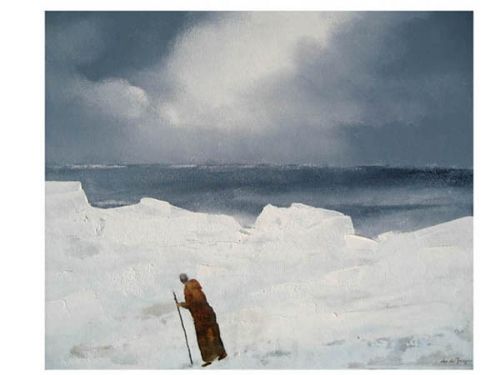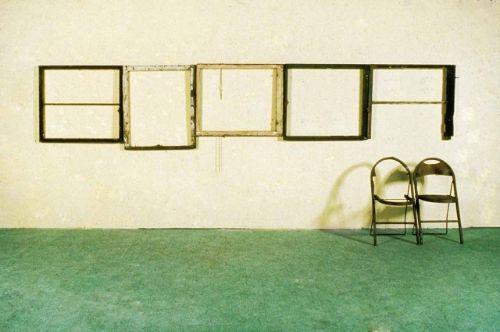I loved this book, and I am grateful to our vicar, Weezie Blanchard, for suggesting it as our parish summer reading book. Jill McCorkle has given us a gift by taking us inside the hearts and minds of people in a retirement community in North Carolina. I loved the musings of the individual residents, as they pondered their lives and what mattered most to them. But I also always looked forward to reading Joanna’s notebook entries (sensitive reflections by a hospice volunteer who knew she was on sacred ground in appraising people’s lives). And the short, stream-of-consciousness musings of the dying themselves in the very last moments of their lives … these are sheer poetry. I was sorry when the book ended; I felt as if I were leaving good friends.

The range of characters and their life experiences is pretty amazing. From the little girl, Abby, who feels more at home in the Pine Haven retirement community than in her own dysfunctional home, to Kendra (Abby’s social-climbing, materialistic, and neurotic mother), to Rachel (the sharp, driven, professional woman from Boston), to Toby and Sadie and Stanley and C.J. … it’s hard not to love all of these people, and to feel for them in their private reflections. There’s a despicable villain or two, but even they help us reflect on the corrupting influences of wealth, power, and even religion.
One of the things I have cherished most about my role as a parish priest is the opportunity I’ve had to share in people’s innermost lives. Secret longings, deepest loves, anxious fears, hounding regrets…. By and large, people are not hesitant to share their victories and achievements with just about anyone. But that is just the tip of the iceberg of a human life, the little part that sticks out above the water line that anyone can see. There’s so much more to who we are that is submerged and hidden.

Monk By the Sea by Leo de Fryne
Some of that hidden part we need to share with someone, and sometimes people choose to share it with a priest. After hearing people talk about some of their hidden lives, I’ve often reflected, either silently or aloud, that if we only knew more of the truth about each other, the world would be a much more compassionate place. All too often, we go around comparing our insides (the secret, interior truth about how we are really getting along in the world) with other people’s outsides (the apparent truth about how other people are doing).
The result, of course, is that we end up believing that other people are doing so much better than we are. Other people seem, on the outside, to be so much better put together, while we know, inside, that we are a mess – other people’s marriages are happier, their home lives are so much more fulfilling, their professional lives are more successful, and psychologically, everyone else seems so much more grounded and balanced.
I’ve often thought that, if only we knew the truth about each other, we’d probably all feel more normal and could relax a little more. We would also surely be more sympathetic, tender, and kind toward each other. It seems to me that Jill McCorkle’s way of taking us inside the hearts and minds of her characters and their life stories has just this effect. We feel deeply for Stanley when his tough-guy charade falls apart; Rachel’s disillusionment about her lover is heartbreaking; Sadie’s optimism and appreciation for the simple things of life are inspiring; C.J., though deeply wounded, nevertheless is spiritually resilient; and Abby’s childhood lens helps us to see ourselves in a new way, which is by turns hilarious and heartbreaking.
But much of the vast, submerged part of our lives remains hidden, not only from people we love most, our spouses and children, and from trusted confidantes like parish priests, but even from ourselves. And Jill McCorkle even manages to plumb the depths of these mysterious parts of her characters, at least indirectly, by giving us several different perspectives on each person – the characters’ own reflections on their lives, the reactions of the characters to one another, Joanna’s notebook entries from the last days and hours of a person’s life, and then the final, poetic stream-of-consciousness musings from the person at the time of death. It all amounts to complex, soulful, and tender portraits of people like ourselves, and people with whom we interact every day.
 \
The Windows of Heaven Are Open by Sook Jin Jo
\
The Windows of Heaven Are Open by Sook Jin Jo
In a way, the drama at the end of the novel distracted me from a deeper consideration of the richness of the various portraits throughout the book. But the ending does highlight how desperate longing, on the one hand, and excessive pride and inflated ego on the other, can lead to terrible tragedy and disgrace.
One of the effects of this novel for me anyway is that it helps me to remember that the complexity I sense inside myself – the beauty and wonder, as well as the corrupting ego and miserable failure – these and other complexities, born of very different experiences, are just as poignant inside all of the seemingly well-put-together people who are all around me every day. In the words of the Psalm, “we are fearfully and wonderfully made.” How important it is to avoid being judgmental; and how important it is to be patient and gentle with each other.
No comments:
Post a Comment